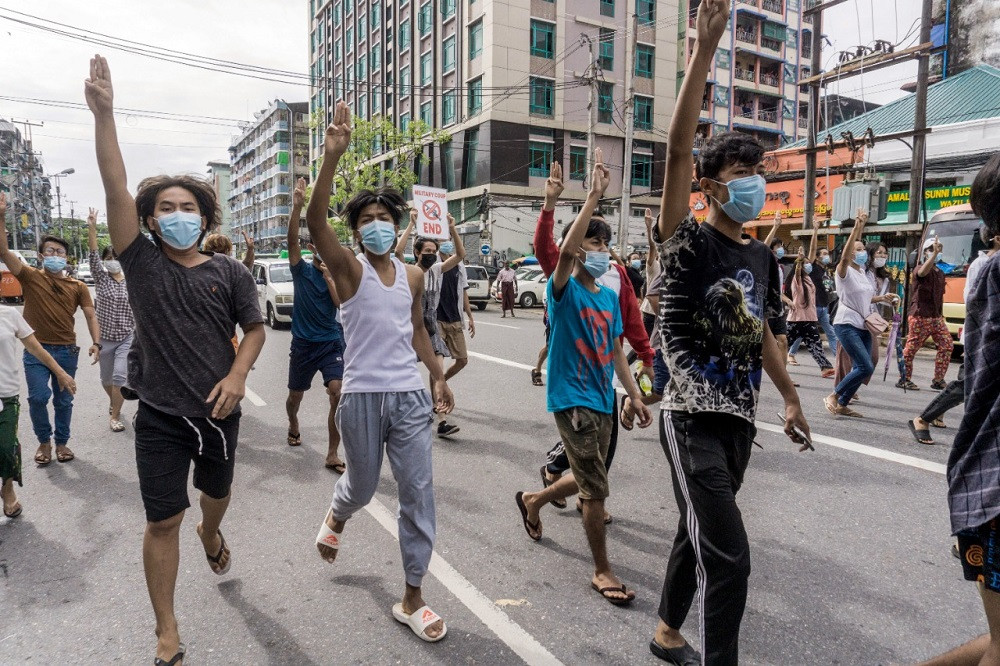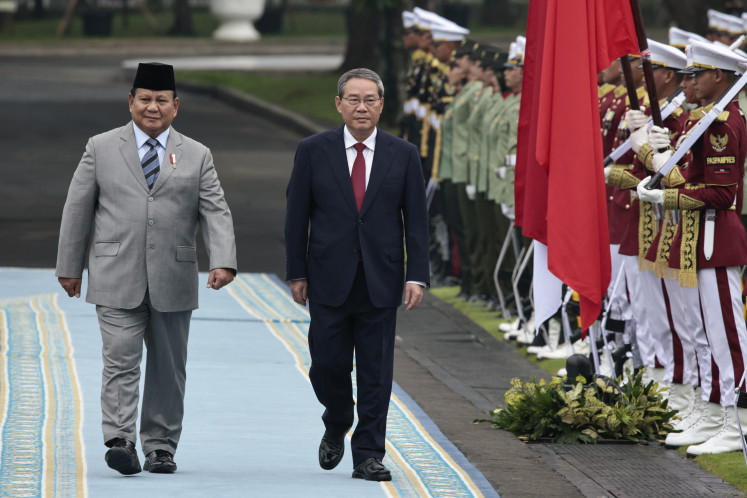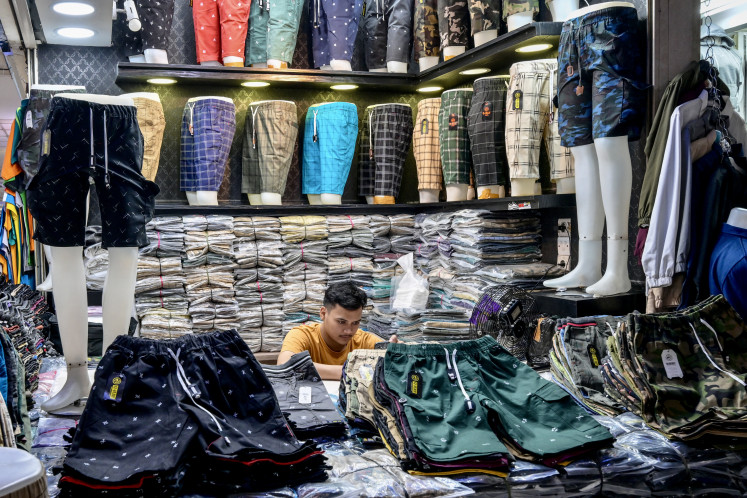Is business as usual an option in post-coup Myanmar?
Myanmar’s military coup d'état in February has forced Indonesian businesses to make adjustments to their operations or even shift exports to other countries. The coup’s impact on trade with Indonesia may last until next year, says an economist.
Change text size
Gift Premium Articles
to Anyone

T
he military coup in Myanmar has led to turmoil that disrupted business activities, including those of Indonesian companies inside the country, and led to a decline in trade with Indonesia.
Myanmar had undergone what seemed to be, on the face of it, a democratic transition, until the military seized power in February. It has since seen protests by democracy activists against the junta that resulted in hundreds of deaths and hundreds of thousands of people being displaced.
Publicly listed Indonesian pharmaceutical company PT Kalbe Farma was forced to look for new markets in Southeast Asia and Africa after its shipments to Myanmar declined in the wake of the coup, said Vidjongtius, the president director.
“We are now coordinating with the Kalbe team over there and the distributors, since medicines are still needed there, so we keep trying to ensure the availability of medicines even though activities are very limited,” Vidjongtius told The Jakarta Post in a text message on Wednesday.
Kalbe Farma, which is traded on the Indonesia Stock Exchange under the ticker symbol KLBF, recently built a factory in Myanmar. It was in the process of applying for quality certification, Vidjongtius said, adding that he expected the certification to be delayed by three to six months.
Read also: Kalbe Farma sales underwhelm investors
In March, the month after the coup, Indonesian exports to Myanmar were down 24.45 percent year-on-year (yoy) at US$70.9 million, according to Statistics Indonesia (BPS). The country’s imports from Myanmar fell 29.7 percent yoy to $18.9 million.
However, both exports and imports picked up in April. Indonesia has booked a surplus in trade with Myanmar at least since 2019. In April, the surplus was $52 million.
Bilateral trade had declined even before the coup, as COVID-19 infections in Myanmar reached a peak in October and November last year. New daily confirmed cases have risen sharply in both countries recently.
Indonesian Ambassador to Myanmar Iza Fadri said the situation in Yangon, the commercial center and biggest city of the country, was being brought under control and activities had picked up, although some pandemic-induced restrictions were still in place.
Read also: Suu Kyi’s trial set to start in Myanmar
Iza said Indonesia’s business presence in Myanmar had not been very large in the first place, and some businesses, such as an arm of publicly listed poultry company PT Japfa Comfeed, which operates in Yangon, had been forced to make adjustments.
“There was a strike, but then Indonesian companies could resume their activities, since their businesses were related to daily needs,” Iza told the Post in a phone interview on Thursday.
The coup was expected to hit shipments of key Indonesian export goods to Myanmar, including palm oil products, coal, forestry commodities and automotive parts, said Andry Satrio, an economist at the Institute for Development of Economics and Finance (Indef).
“We will be affected by the coup at the very least until next year,” Andry told the Post in a text message on Friday.









